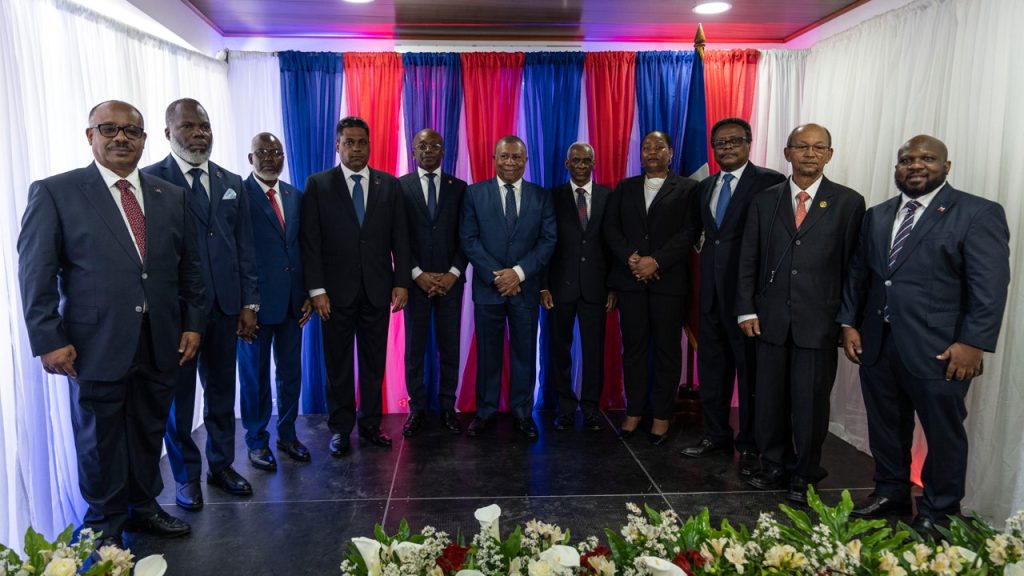A transitional council has been installed in Haiti in an effort to bring about political stability to the Caribbean nation, which is currently facing issues such as gang violence, hunger, and poverty. The council has been tasked with appointing a new prime minister and Cabinet, as well as creating a road map for holding long-awaited general elections. The council’s mandate expires in February 2026, at which point a new president will be sworn in.
The council is made up of eight men and one woman, with seven members having voting powers. Some of the key members of the council include Smith Agustin, a former ambassador to the Dominican Republic and legal expert, Louis Gérald Gilles, a former senator and representative of the signatories of the Dec. 21 agreement, and Fritz Alphonse Jean, an economist who is president of the Haitian Institute of Public Policies. Other members include Edgard Leblanc Fils, Laurent Saint-Cyr, Emmanuel Vertilaire, Leslie Voltaire, Régine Abraham, and Frinel Joseph.
Smith Agustin replaced former nominee Dominique Dupuy, a UNESCO ambassador, who resigned following political attacks and death threats. The council also includes individuals representing various political parties and organizations, such as the New Orientation United to Free Haiti party and the National Peasants’ Network. Leslie Voltaire, for example, is linked to the Fanmi Lavalas party and has a long history as a veteran politician in Haiti, having served in past administrations and even running for the presidency in 2010.
In addition to the voting members of the council, there are also two observers. Régine Abraham, an agronomist and Cabinet director at the Ministry of the Environment, and Frinel Joseph, an evangelical pastor who was previously the treasurer of Haiti’s electoral council. Joseph was accused of being too focused on his personal political objectives by the Conference of Haitian Pastors in 2020, which ultimately led to his resignation from the council alongside seven other members due to local pressure.
Overall, the transitional council in Haiti has been established to tackle the ongoing political and social challenges facing the nation. The council’s primary goal is to bring about political stability, appoint key government officials, and pave the way for general elections in the future. The diverse makeup of the council, with members representing various political parties and organizations, reflects a broad effort to find solutions to Haiti’s complex issues, such as gang violence, hunger, and poverty. With a mandate that expires in February 2026, the council is expected to work towards achieving its objectives within the given timeframe before a new president is sworn in.


